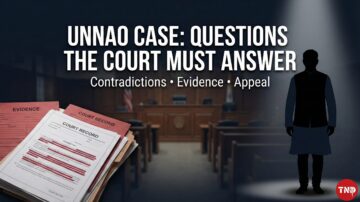
Bengaluru, India – July 2025 | The Karnataka government is preparing to introduce a highly controversial legislation named the Rohith Vemula Bill, a move that has triggered an uproar among General Category (GC) students and civil society. Touted as a measure to protect Scheduled Castes (SC), Scheduled Tribes (ST), Other Backward Classes (OBC), and Minorities from discrimination in educational institutions, the bill is being described by critics as a “draconian law aimed squarely at General Category students.”
- What Is the Rohith Vemula Bill?
- Why the General Category Is Alarmed
- Legal Experts Raise Red Flags
- Critics Call It “Legalized Apartheid”
- Not the First of Its Kind
- Political Fallout and National Implications
- GC Students: “We’re Criminals Because of Our Birth?”
- Broader Debate: Justice or Reverse Discrimination?
- Conclusion: A Nation Divided by Identity?
The Rohith Vemula Bill named after the University of Hyderabad student whose tragic suicide in 2016 sparked a nationwide debate on caste and discrimination has stirred deep anxieties among students who feel the legislation institutionalizes bias against General Category youth.
What Is the Rohith Vemula Bill?
According to the Karnataka government, the Rohith Vemula Bill aims to curb caste-based discrimination and harassment in universities both government and private. It proposes stringent punishment, including criminal charges, for students or faculty accused of caste based abuse or exclusion.
Key provisions include:
- Non-bailable offenses for caste discrimination complaints.
- Immediate suspension of accused individuals pending investigation.
- Exclusive protection to SC/ST/OBC/Minority students.
- Oversight committees formed with mandatory SC/ST/OBC/Minority members.
On paper, it promises protection. But many are asking protection from whom? Critics argue the bill excludes General Category students from safeguards, making them vulnerable to false accusations and disproportionate punishment.
Why the General Category Is Alarmed
General Category students and activists say that the Rohith Vemula Bill is not a shield, but a sword. Social media platforms are buzzing with hashtags like #GCApartheid and #RohithVemulaBill, where users allege the bill creates an open season of harassment and scapegoating for GC youth.
A viral tweet reads:
“Karnataka Government Declares WAR on General Category Youth. False complaints will be enough to throw GC students in jail.Today Karnataka. Tomorrow your state.”
Several student organizations from General Category backgrounds have expressed concern that the bill could be misused in much the same way critics say the SC/ST (Prevention of Atrocities) Act has been in the past.
Legal Experts Raise Red Flags
Legal professionals say that the Rohith Vemula Bill could violate key constitutional principles such as equality before the law and due process of law.
“While protecting vulnerable communities is necessary, no law should presume guilt based on social identity,” said a retired High Court judge. “The absence of safeguards for the accused, especially when the charges are non-bailable, makes it ripe for misuse.”
They also note that the bill overrides existing laws such as the UGC guidelines, IPC provisions, and internal grievance redressal mechanisms that already address discrimination.
Critics Call It “Legalized Apartheid”
Critics allege the Rohith Vemula Bill is designed to create two classes of students those who can accuse without consequence, and those who must defend without protection. This, they say, amounts to state sponsored discrimination against General Category students.
The bill also applies to private universities, causing private stakeholders to worry about their autonomy and legal liabilities.
“If passed, this law will criminalize academic environments. No student will feel safe especially those from the General Category,” says a student leader from Bengaluru.
Not the First of Its Kind
The Rohith Vemula Bill follows similar moves in other states that have pushed for caste based grievance redressal cells and affirmative policies in faculty recruitment. However, this bill goes a step further by proposing criminal action without prior inquiry or trial.
Many argue that rather than building inclusivity, the bill deepens divisions.
Political Fallout and National Implications
The ruling Congress government in Karnataka sees the Rohith Vemula Bill as a progressive step toward social justice. But opposition parties and student organizations are gearing up for a massive protest movement.
Political observers say that this law could set a precedent for other states to follow especially those where caste based vote banks are politically decisive.
A spokesperson for a national student union said:
“We fear this bill is a Trojan horse. It pretends to be about justice, but it’s about vengeance. It’s a weaponization of caste.”
GC Students: “We’re Criminals Because of Our Birth?”
General Category students now feel under siege. Already excluded from reservations in education and jobs, they now fear criminal persecution in universities.
Students are asking: If birth based privilege is wrong, how is birth based punishment right?
The fear is not abstract. With the law proposing non-bailable offenses, students worry that a classroom disagreement could land them in jail without proof, trial, or even the opportunity to explain.
Broader Debate: Justice or Reverse Discrimination?
The bill reignites the national conversation on merit vs social justice, protection vs persecution, and equality vs equity.
Proponents of the bill argue that discrimination against SC/ST/OBC/Minority students remains rampant and must be tackled with urgency.
However, the bill’s critics say that justice cannot come by punishing one group to protect another. “Real social progress,” they argue, “comes through fairness, not fear.”
Conclusion: A Nation Divided by Identity?
The Rohith Vemula Bill, if passed in its current form, could change the educational and legal landscape of India. It is being seen not just as a state policy, but a symbol of how identity politics may redefine the rights and freedoms of India’s youth.
Whether you view it as a necessary tool for justice or an overreach that criminalizes a community, the debate over this bill will likely shape student politics, academic freedom, and legal norms for years to come.
The General Category youth have sounded the alarm. The question is who’s listening?
Stay Connected with The News Drill for more updates. Stay informed. Stay updated. Stay Ahead.
Have thoughts on the Rohith Vemula Bill? Share your views or whistleblow on discrimination at: editor@thenewsdrill.com
Want to submit your campus experience or opinion? Reach us through our contributor form on The News Drill.
🔴 This is a developing story. Stay with TND for verified updates, youth responses, and legal analysis.
Contact us: contact@thenewsdrill.com
Disclaimer:
The views expressed in this article reflect the concerns and opinions of a section of the public and student community. The News Drill does not endorse discrimination or bias against any group or community. This article is intended for informational and journalistic purposes only, and all readers are encouraged to verify claims and understand legal provisions independently. The intention is to spark informed debate, not to promote division.
If any group or individual feels misrepresented, we welcome clarifications and will update the article accordingly.







